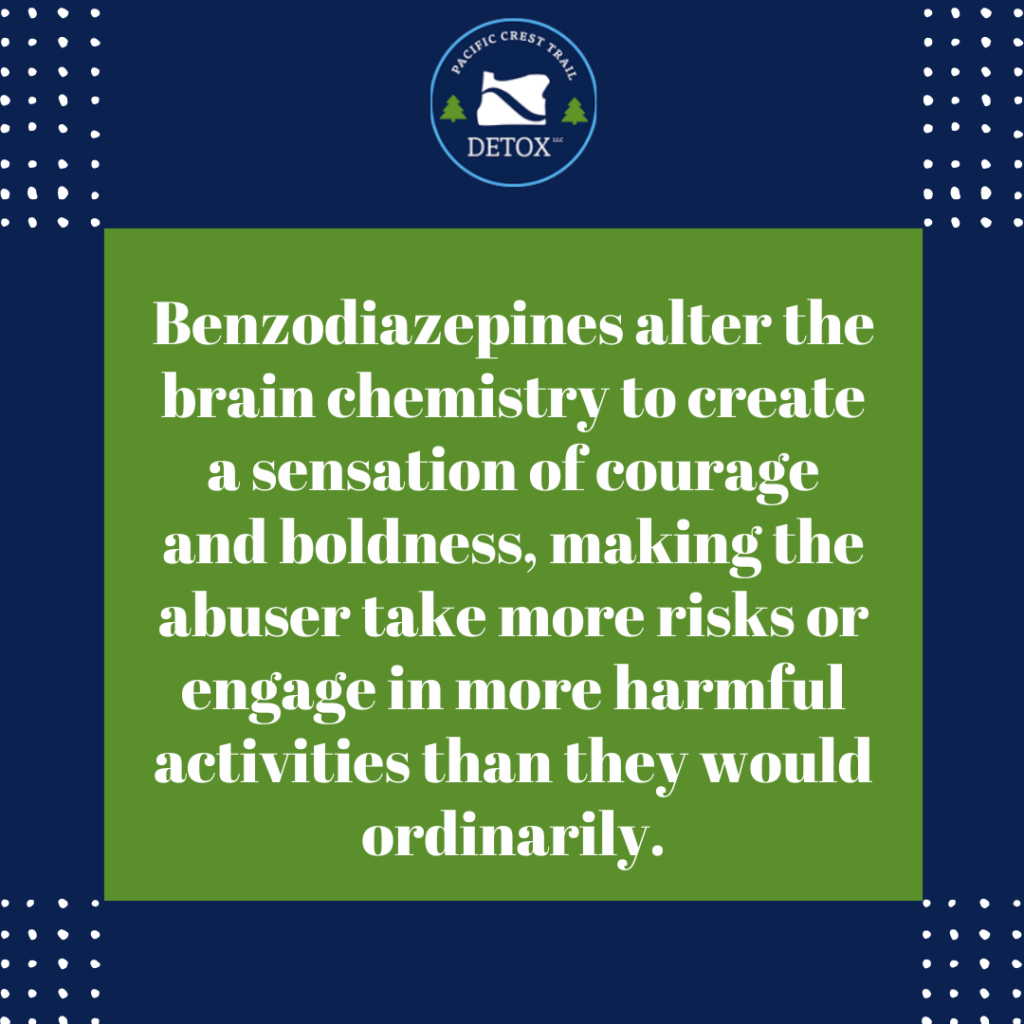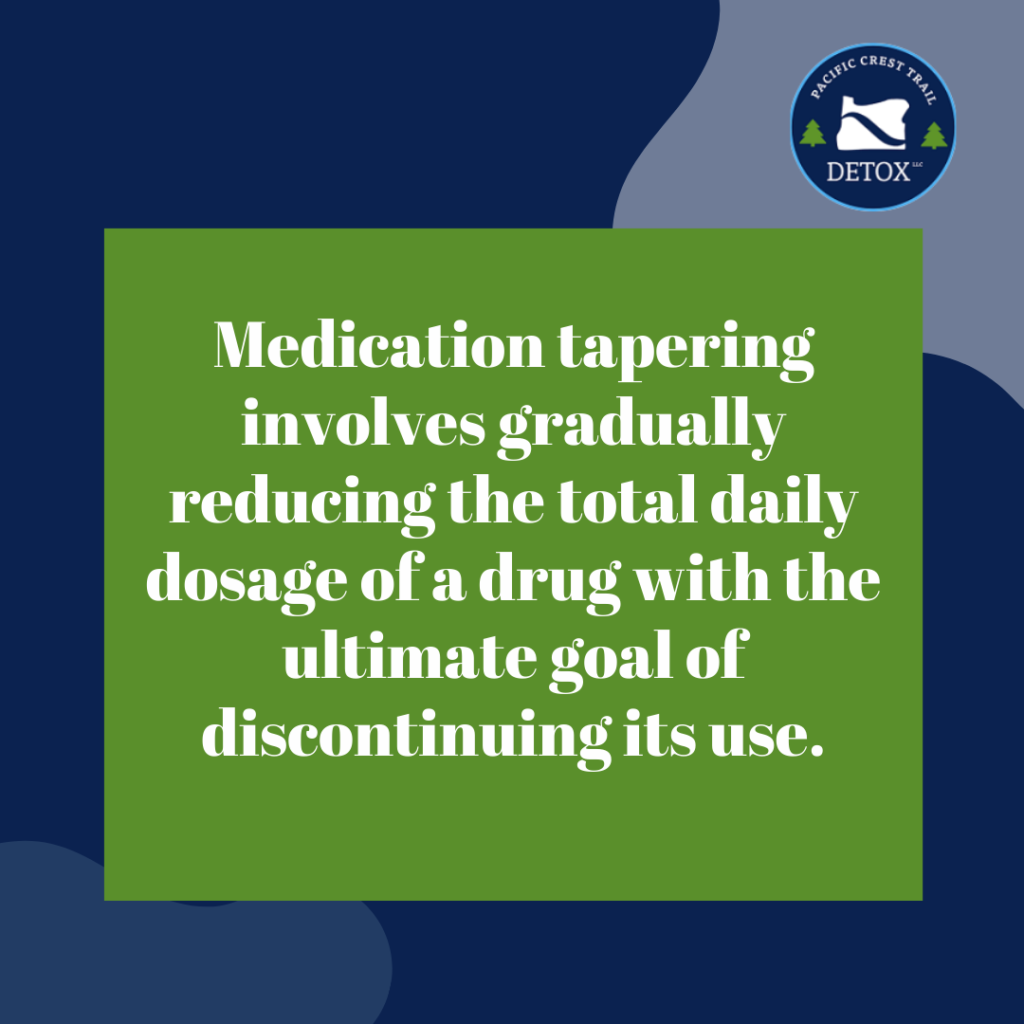At a glance, benzodiazepine addiction occurs more frequently than you think. In truth, the numbers grow by millions each year. Benzodiazepines are a common type of high-risk and addictive drug called tranquilizers. Brand names like Valium and Xanax are well-known in the United States.
However, the use of these medications becomes abuse when those who are not issued a prescription obtain and use them for their soothing effects or when they are used in excess and the individual becomes overly dependent on the substance.
Tapering recommendations have been developed to lessen the risks of opioid addiction and to encourage patient-centered care. A taper is either a decrease in a patient’s daily opioid dosage or an end to opioid medication permanently. Contingent upon the patient’s goals and profile, such tapering protocols are intended to enhance their quality of life.
This article thoroughly explains benzodiazepines and how to reduce dosage safely gradually. You’ll learn about the various treatment options you have at the end of your read, and you may use that information to create a long-term recovery plan.

Understanding Benzodiazepines
Many lives can be saved by having sufficient knowledge of benzodiazepines and how to utilize them medically. We can use the drug more effectively and be educated about the harm that might result from misuse.
Benzodiazepine Drugs and Their Common Uses
In a journal by Neurology International, benzodiazepines are a class of widely prescribed psychoactive drugs known for their depressant effect on the nervous system. Their sedative impact aids insomnia disorders and promotes comfortable sleep by minimizing the time it takes for sleep to onset, while their depressive effect lessens anxiety and prevents panic and anxiety episodes.
The Potential for Abuse and Addiction
Benzodiazepines can cause just as much harm as good. Abusing these medicines could significantly influence your health if left unrestrained.
According to a study, fatal overdoses have plateaued overall, and prescriptions for benzodiazepines have increased significantly among adults in the United States.
Psychiatric problems and a personal or family history of substance dependency are strongly associated with the use and misuse of benzodiazepines. For instance, one particular research by Ross said that those with a history of alcoholism and antisocial personality disorder appear to be at an exceptionally high risk of abusing benzodiazepines.
Benzodiazepine usage can lead to addiction; if you continue to use a drug, responsibly or not, for an extended time, you will naturally develop an addiction.
Signs and Symptoms of Benzodiazepine Addiction
Although benzodiazepines are calming and relaxing, they are still highly addictive, and abusing these drugs may cause severe side effects. Be aware of the causes and symptoms of benzodiazepine addiction before its dangerous effects jeopardize your life.
Observing Physical and Psychological Signs
When these drugs are not used as prescribed by a doctor, they may trigger several indications and symptoms. The following are some of the most prevalent signs of benzodiazepine addiction:
- Insomnia or disrupted sleeping patterns
- Drowsiness or nausea
- Loss of consciousness
- Agitation or loss of coordination
- Paranoia and violent behavior
- Changes in personality
- Irritability and hostility
- Sexual dysfunction
Risks and Long-term Effects of Benzodiazepine Use
Despite having numerous advantages, long-term and excessive benzodiazepine usage can lead to physical and psychological dependence, as well as major hazards that make the risk-benefit ratio unfavorable. Regular use of benzodiazepines can result in serious health concerns, including:
Personality Changes
Benzodiazepine medicines alter the brain chemistry to create a sensation of courage and boldness, making the abuser take more risks or engage in more harmful activities than they would ordinarily.
Such rage has the potential to cause terrible accidents and mishaps. For example, studies of traffic accidents show that drivers who test positive for the use of sedatives and tranquilizers are two to eight times more likely to be involved in an accident than those who are not.
Benzodiazepine Dependence and Tolerance
Benzodiazepines can cause not only addiction or physical dependency, but those who abuse it are likely to develop a psychological dependence as well, in which they believe they need the drug to cope with daily life.
Tolerance develops gradually, which means that a person must take greater and larger doses in order to attain a similar effect. The body becomes reliant upon the medicine to function properly over time.
Benzodiazepine Withdrawal
When benzodiazepines are used to satisfy or ease temporary health problems, both dependence and tolerance develop. As a consequence, abruptly discontinuing or attempting to reduce consumption after building a physiological reliance on the medication can result in severe, potentially fatal benzodiazepine withdrawal symptoms such as seizures and an increased heart rate.

Tapering Protocols: Why Are They Necessary?
It may be challenging to discontinue taking a drug when a patient has become tolerant to it unless the dosage is progressively reduced over time. To reduce its dangers, it is crucial to understand how to taper off drugs and perform safe drug withdrawal.
Safe Drug Withdrawal Through Proper Tapering
Medication tapering involves gradually reducing the total daily dosage of a drug with the ultimate goal of discontinuing its use. This procedure is dependent on certain properties of the drug as well as factors unique to the patient, such as their personal goals and profile. Sometimes a tapering effort needs to be slowed down or halted entirely.
Cold Turkey vs. Tapering: Which Is Better?
Cold turkey is a rapid way to quit smoking, drinking, or using and abusing drugs. Instead of carefully tapering off the substance, you discontinue it abruptly, giving you the chills when your body isn’t given a taste of what it’s accustomed to.
Going cold turkey might not be the best option for those dependent on a particular substance for a long time. A strong desire to resume drug use could arise from quitting too soon.
The Dangers of Abrupt Discontinuation
Severe withdrawal symptoms may increase your body’s desire to use the drug again to alleviate them momentarily. From there, the cycle continues, and you wind up at square one. Relapsing is going back to taking drugs or alcohol after you have already quit.
Different Approaches to Tapering
Tapering techniques are quite complex and vary from patient to patient. The following are some examples of common approaches for tapering:
Gradual Dose Reduction Method
Gradual Dose Reduction, or GDR, is the process of gradually lowering a dose to see if symptoms, problems, or potential risks can be controlled by a lower dose or by stopping the medicine completely.
It is worth noting that GDR may not always be clinically indicated. Depending on the patient’s records, thwarting certain drugs may occasionally be disallowed when a lifelong need for the medication is necessary for the patient’s survival.
Switching to a Long-acting Benzodiazepine
In both withdrawal and maintenance therapy, switching to a long-acting benzodiazepine is good unless the patient is elderly, one study says.
Long-acting benzodiazepines, such as diazepam and clorazepate, have a prolonged half-life. This indicates that the medications are metabolized more slowly and therefore, take longer to exit your body. You can expect some drug side effects but are less likely to have severe withdrawal symptoms.
A smooth and progressive decline in blood level is made possible by long-acting medications removed slowly. It allows your body to acclimate to a lower concentration of benzodiazepines gradually.
It is crucial to remember that the switch-over process must happen carefully, typically in a stepwise approach, substituting one dose at a time so that the body does not react negatively.
Collaborative Decision-Making with a Healthcare Professional
By seeking professional advice, you can gain a sufficient understanding of the advantages, drawbacks, and potential outcomes of the various options that are put before you. Additionally, it gives you the freedom to choose the medical procedures and care that are best for you at the time.
Seeking Professional Help
The road to recovery starts with detox and withdrawal management with clinical supervision. By itself, detox may not be sufficient to pave the entire journey ahead of you. A more thorough substance use disorder treatment should come next. This includes residential treatment or an intensive outpatient program.
No Need To Wait. Get Help Now.
Benzodiazepines are highly addictive depressant drugs for treating many disorders like anxiety and insomnia. When these medicines are misused repeatedly, it’s possible for severe and even potentially fatal side effects to arise.
Rapid and abrupt discontinuation of the medications can be just as harmful as becoming dependent on them. In fact, you are at higher risk of relapsing and suffering from dangerous withdrawal symptoms.
Start by reducing your medicine dosage. Your mind and body will have time to grow used to living without it if you gradually reduce the dose until you reach your goal.
Benzodiazepine addiction has claimed millions of lives around the globe. If you or a loved one is struggling with inappropriate benzodiazepine dependence, detox centers in Portland, Oregon, like Pacific Crest Trail Detox, can meet your specific needs.


